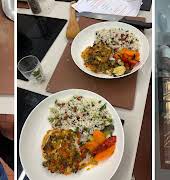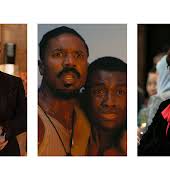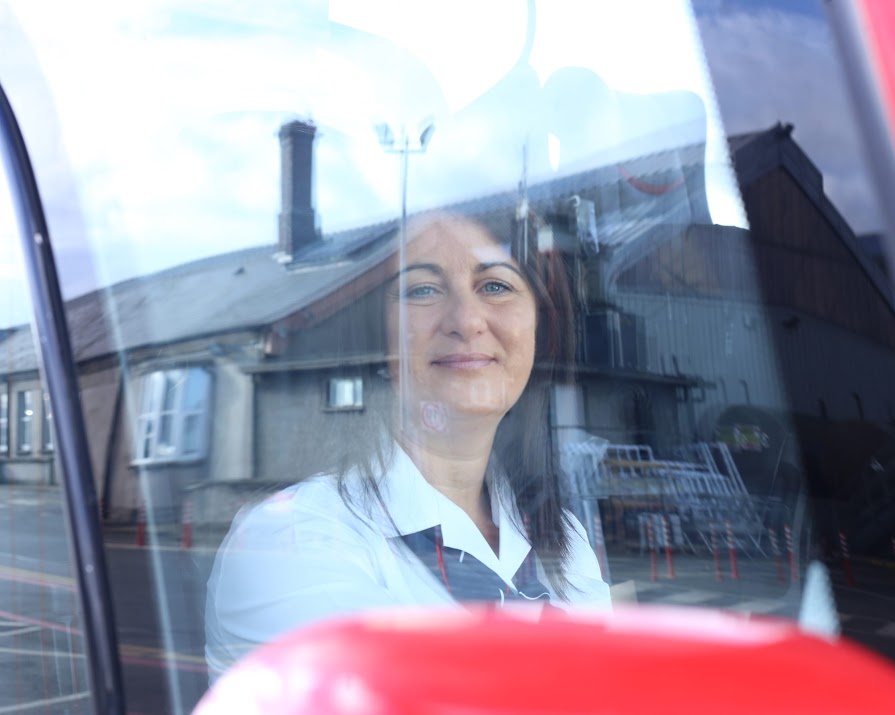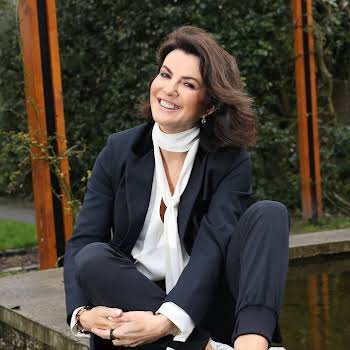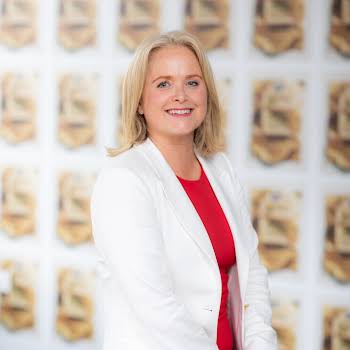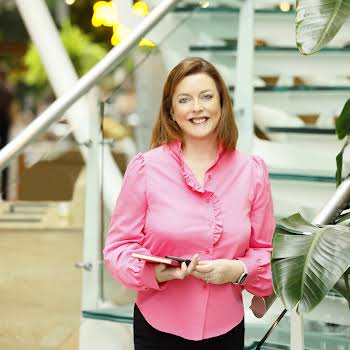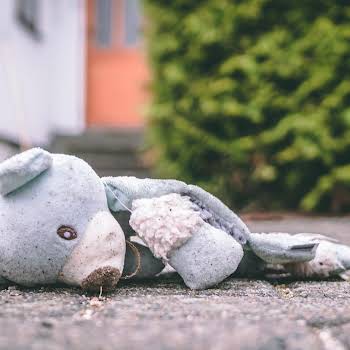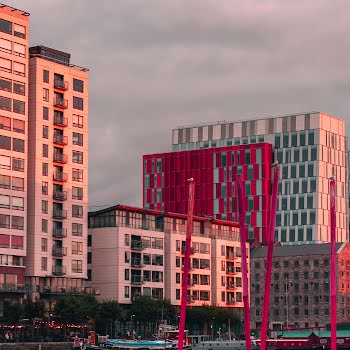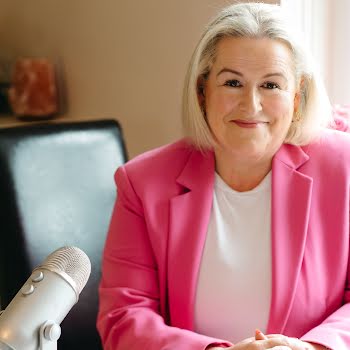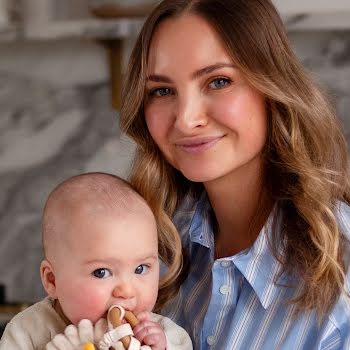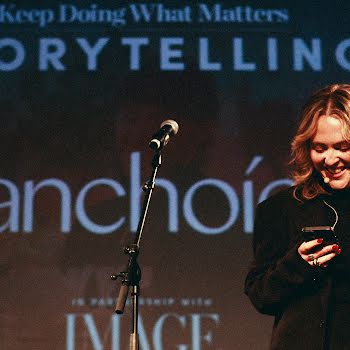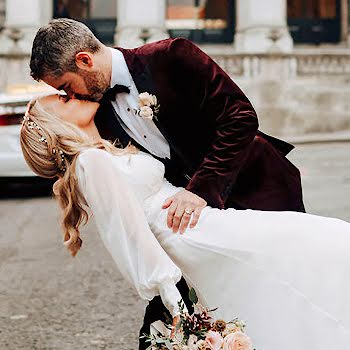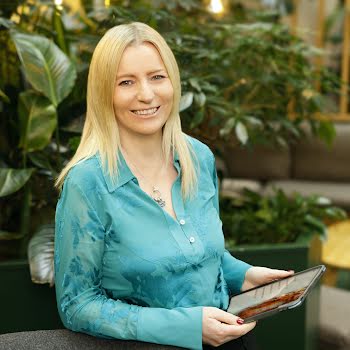
‘Back to work? We never stopped.’ We hear from a nurse, a bus driver and a Childline volunteer
By Lizzie Gore-Grimes
21st May 2021
21st May 2021
While some of us are just starting to think about work in the real world, Lizzie Gore-Grimes spoke to three essential workers at the end of lockdown 1 who never stopped…
Nelson Lim, theatre nurse, St Vincent’s Hospital Dublin
When everyone came out on their balconies to clap for the health workers it felt really special. It really helps us not to feel scared to go into work. The acknowledgment and appreciation means a lot

“Myself and my wife are both theatre nurses in St Vincent’s hospital. We met on the job 17 years ago. For many years I worked in orthopaedics but more recently I have been working in the thoracic surgery theatre. I completed a training programme in robotics in Strasbourg in August which was great to do but that type of surgery has all been put on hold now.
Most of the theatres in the hospital have been converted to ICU units, with one theatre kept exclusively for Covid-19 patients in need of surgery. The only other type of surgery taking place at the moment is emergency- or cancer-related.
Before Covid-19 I worked a fairly standard week, I chose to work a five-day week over four days, as we have a young family at home; my two children are five and 11. Now both myself and my wife’s schedules are turned upside down. We work two long days in a row (12 hours each), then two days off, then two nights. These hours are really difficult on your body clock. I know some of my colleagues are not used to night shifts at all and are really struggling with the shift in gear from long days to full nights. Myself and my wife only see each other for one day a week.
Previously I would have known which theatre I was working in and my week would have been fairly predictable on that front. Now things are completely unpredictable. I have no idea where I am going to be assigned for the day when I arrive at work.
When we get home we leave our shoes outside and do not greet the children before we get into the shower and wash ourselves completely
We are currently helping across multiple departments, including ICU. We had to do a crash course to work in the ICU and it is as stressful as you can imagine. Myself and my wife are both very worried because we have a family. If one of us gets sick we will not be able to live at home, the HSE will place us somewhere but that will be really difficult for us and our children.
Our children are doing fine but it’s hard. Trying to help them with their schooling while managing the long hours at work – and the worry – is intense. Previously we would have had lots of help and support from neighbours, we would have shared playdates and minding but we can’t do that now.
When we get home we leave our shoes outside and do not greet the children before we get into the shower and wash ourselves completely. We can only hug the children once we are in new, fresh clothes. This is hard when they are used to greeting us with hugs as soon as the door opens!
We live in an apartment complex and when everyone came out on their balconies to clap for the health workers it felt really special. It really helps us not to feel scared to go to work. The acknowledgement and appreciation mean a lot.
I am worried for my elderly mum and sister in the Philippines, they are also in lockdown, but we keep in touch all the time. The phone is our godsend and we are so grateful to have each other.”
Lee Daly, volunteer call facilitator, ISPCC Childline
The skills I have learned and my experience working with Childline and offering vital support to children who need it has changed my life

“I was one of the youngest volunteers when I started. I was 22 and still in my final year of college studying software engineering. My family and friends thought I was mad at the time, but I’ve been volunteering for three years now and I can honestly say it has changed my life.
I work in the call centre in Limerick, every Sunday for four hours a week. Sunday suits me as I work full-time Monday to Friday (from home at the moment).
I started volunteering because I have experienced how it works from both sides. When I was a young teenager, going into secondary school I suffered from anxiety and depression due to stress in the run up to exams. I wasn’t sleeping or eating properly and I started to get panic attacks. I was terrified as I had no idea what was happening to me.
Even though my parents and friends were there for me, I started chatting to my Nan and she was amazing. She just listened and didn’t make me feel judged in any way, she asked questions like ‘Do you think you should feel like that?’. The effect was amazing. After a few weeks of talking to her about things I just started to clear my head and figure things out.
Later in college, I started to help my own friends in the same way, I became the guy to chat to if you had a problem and I still talk to my Nan like that every week.
So when I found out about the Childline call centre in Limerick I went for it.
The training you get as a volunteer is brilliant. For about three months you learn the fundamentals of active listening and asking open-ended questions, then you’ll spend time listening and observing other senior trained volunteers and practise your new skills through roll play calls etc. You also get vital training on how to protect yourself from emotional stress.
The skills I have learned and my experience working with Childline and offering vital support to children who need it has changed my life. On a personal and professional level I see the enormous benefits these listening skills and new mindset brings to everything I do, including my day job.
We do not give out advice or make suggestions. We simply help them to explore their own feelings around an issue, help them to unknot their own thoughts
The young people that call in can be calling for a huge variety of reasons. At the worst end of the spectrum we have children calling in who are living in a fearful, abusive situation at home – a situation made 100 times worse in this current lockdown situation. But at the other end of the scale you get plenty of children who just want to chat. They may not have any huge specific problem, but they have tried the service and have discovered how helpful it is just to chat to someone who is completely anonymous to you and will just listen.
We do not give out advice or make suggestions. We simply help them to explore their own feelings around an issue, help them to unknot their own thoughts so they can decide themselves what they want to do next.
We are here, 24/7, to listen and support and help empower young people to take the steps they need to, to feel better.”
Since restrictions, demand has increased by 25% for Childline’s services. ISPCC Childline relies almost exclusively on private donations. Donate online at ispcc.ie/donate-now. Or, text CHILDHOOD to 50300 to donate €4. (ISPCC Childline receives a minimum of €3.60. Service Provider: LikeCharity)
Rhonda Byrne, bus driver with Bus Eireann
I think this crisis has brought out the best in Ireland. The sense of a community coming together is really powerful and positive. Overall, I feel a great sense of camaraderie from the people I meet everyday

“I’ve been a driver for Bus Eireann for over 13 years now. I work the routes out of Kells – the 109 from Kells to Dublin city centre and the 109a Kells to Dublin airport. Both routes operate almost around the clock, the 109 starts at 5.15am and runs until 11.15pm and the airport route runs 24 hours, on the hour.
I feel incredibly grateful to be working right now. Neither my schedule or my hours have changed really. I work shift work, five days a week, and the company are very good at trying to make sure the drivers’ schedules have a good balance of early and late shifts.
At the moment, while I’m talking to you, I’m sitting out my back garden taking a bit of sun before I start work at 5.50pm, so no complaints there at all.
Everyone is so good about the social distancing. I get no complaints. I love to chat to my passengers, and I still do – I just have to shout a bit louder!
Since the Covid-19 outbreak the service has been reduced slightly, our regular Mon-Fri service has been reduced to a Saturday service, but all routes are continuing to operate.
We are observing all the health and safety guidelines. The first thing I do when I arrive at work is give my bus a full wipe down with the special sanitizing equipment we’ve been supplied with. We also have hand sanitisers, gloves and visors to cover our face when we’re dealing with the public.
There is an inspector at the depot every day – as every new shift begins to ensure that we are all complying with the new regulations. We are observing social distancing on the buses with seats marked so that passengers are spaced apart from each other and the two rows behind the driver are blocked out entirely.
Everyone is so good about it. I get no complaints. I love to chat with my passengers, and I still do – I just have to shout a bit louder!
Obviously, there has been a drop-off in the number of passengers I would usually be bringing to the airport to travel, but there’s still plenty of people working there. I got quite emotional the other day, chatting to two women who were getting off at the Mater Hospital, both healthcare workers. I feel so privileged to be doing my bit to get them to work.
For me personally, I’d say I’m finding the same things hard as everyone else. I miss my family. I would usually spend Easter with my three young nephews but this year we had to celebrate together over FaceTime. But still I am so grateful that I have my job and I am able to do my bit to support other essential workers to get to work and do theirs.”
I think this crisis has brought out the best in Ireland. The sense of a community coming together is really powerful and positive. Overall, I feel a great sense of camaraderie from the people I meet everyday. At the moment I have my job, my health and my home, and I’m thankful for that.”
This piece was originally published in May 2020.

